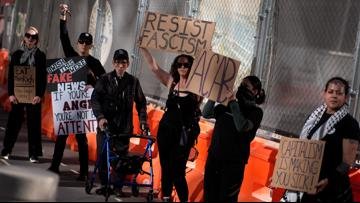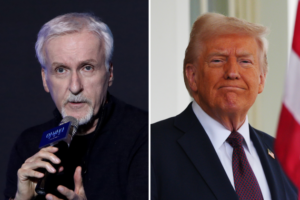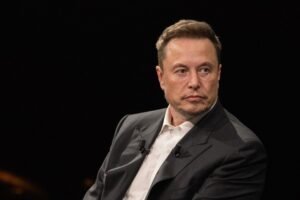28 Feb, Friday: A grass-roots group, The People’s Union USA, is calling on U.S. citizens to spend no money whatsoever for 24 hours this Friday in a show of “economic resistance.” The movement, which has been called an “economic blackout,” is intended to protest what the founder of the group, John Schwarz, calls the negative impact of billionaires, big corporations, and the two major political parties on the lives of working-class Americans. The campaign has caused a stir on social media, with much debate.
The no-spend day, from midnight EST Friday through 11:59 p.m., urges participants to eschew all spending, especially at big-box retailers such as Walmart and Amazon. The group also discourages fast food, gasoline, and other discretionary purchases, and asks that those who must spend for essential needs spend money at local small businesses instead. People’s Union USA, established by Schwarz, a meditation instructor living in the vicinity of Chicago, presents itself as non-partisan and speaks out on behalf of all people’s interests.
On top of the blackout for one day, the organization is organizing a week-long boycott of certain businesses, such as Walmart, Amazon, Nestle, and General Mills, on March 28. For Amazon, the boycott also includes its subsidiary Whole Foods. The movement is hoping to put pressure on corporations to reverse their policies and practices.
It is part of a larger consumer activism wave. Other organizations, such as labor activists and faith leaders, are mounting boycotts to protest against companies cutting back on diversity, equity, and inclusion (DEI) initiatives. Target specifically has been targeted by these initiatives. Following a January announcement about rolling back its DEI initiatives, the chain has been slammed by activists and faith leaders. Atlanta’s Reverend Jamal Bryant started targetfast.org, a 40-day Lenten boycott of Target, beginning March 5. Likewise, the National Action Network, led by Reverend Al Sharpton, committed to naming and boycotting businesses dropping their DEI initiatives.
Analysts are not agreed on whether these boycotts will be effective. Marshal Cohen, Circana’s chief retail advisor, said that although the economic blackout would likely result in a modest decline in sales, its overall impact might be minimal, especially in an unfavorable economic environment characterized by inflation and consumer restraint. Northwestern University marketing professor Anna Tuchman concurred, saying that although the blackout would be a symbolic gesture, it would not result in long-term economic shifts.
However, past boycotts have shown mixed results. Target experienced a sales decline in 2023 after backlash against its Pride Month collection, prompting the retailer to scale back related merchandise the following year. Conversely, Goya Foods saw a temporary sales boost during a 2020 boycott after its CEO praised then-President Trump, driven by new customers from Republican-leaning areas. Bud Light, however, remains to grapple with flagging sales following a controversial marketing decision in 2023.
Regardless of doubt concerning the long-term efficacy of the action, those like Afya Evans, an Atlanta political consultant, find value in the movement. Evans will be taking part in the blackout by patronizing small and Black-owned businesses and seeing the movement as an exercise in testing aggregate consumer power and strategizing about future actions.
The “economic blackout” and related boycotts are a sign of increasing discontent among Americans regarding corporate and political power. Their short-term effects may be muted, but these actions highlight the power of mass action to open up larger discussions about economic fairness and corporate responsibility. As Evans said, “Let everybody participate. And plan from there.”
Get more News Headlines At Our Social Platforms And Do Follow.








Average Rating